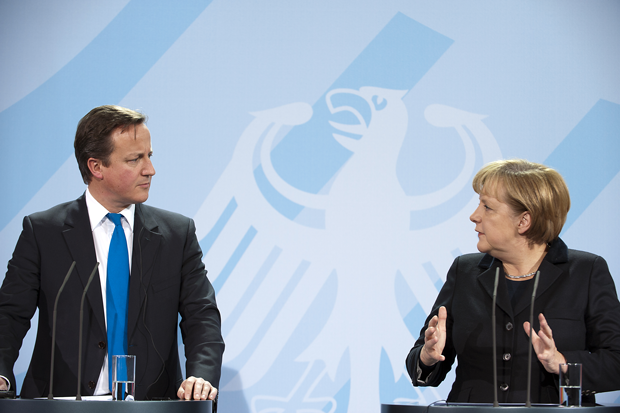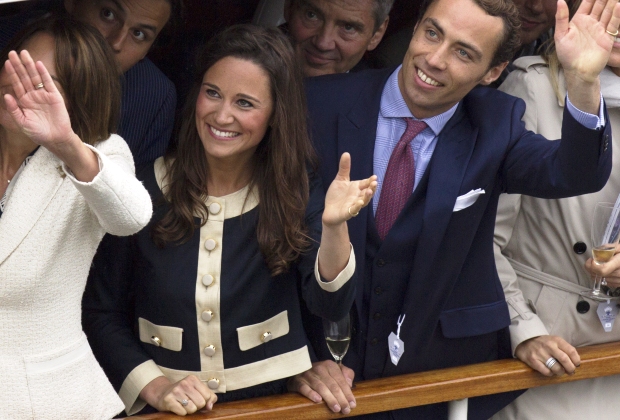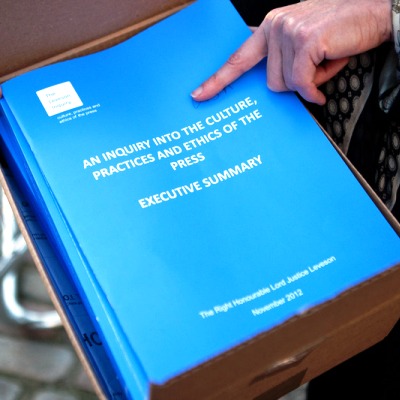22 Jul 2013 | Comment, Digital Freedom, Europe and Central Asia, News, United Kingdom, United States
There have been some sharply contrasting political reactions to the US and UK’s mass surveillance programmes in European countries in recent days. Could the US perhaps play divide and rule in managing the fallout from Snowden’s revelations in Europe? Or is there enough common ground between German, UK or even Russian politicians to push for real changes in US (and UK and French) snooping?

(Photo: Gonçalo Silva / Demotix)
At first glance, it seems the issue is being damped down in the UK in contrast to angry and sustained political debate in Germany, and a more nationalist and opportunistic response by Russian politicians.
Last week British MPs on parliament’s intelligence and security committee confirmed that GCHQ, the UK’s signals intelligence HQ, had indeed obtained intelligence from the US Prism programme. But they concluded, remarkably quickly (no long investigation here), that allegations of law-breaking were “unfounded”. Whether the MPs are right or not, their report in fact only concerns part of Prism – the ‘content’ data GCHQ accessed and not the reams of metadata which can be equally or more revealing about individuals’ activities; and it doesn’t touch at all on the so-called Tempora programme by which, according to Snowden, the UK has been accessing massive amounts of data, by tapping into underwater cables, on a scale that goes beyond even US activities.
Meanwhile in Berlin last week, German politicians on the Bundestag’s control committee – were demanding answers on the NSA revelations from interior minister Hans-Peter Friedrich, who admitted he was still trying to get enough information out of the US on the reach of American surveillance. The following day, German journalists grilled Chancellor Angela Merkel’s spokesman for an hour and half about what the German government and security services already knew about US snooping, and how they will stop it.
Merkel has called on Obama to respect German laws though adding, rather curiously, “on German territory” – snooping on Germans on servers in the US or as their communications pass through underwater cables are side-lined by this emphasis. Merkel is also pushing for action at EU level, promising she will demand much tougher EU data protection laws – due to be agreed in the coming months. Germany’s political response seems in a much higher gear than in the UK.
Over in Moscow, some Russian MPs too are emphasising safeguards to protect personal data from US snooping. But with demands for big companies like Google and Facebook to respect Russian laws and pass on user data when requested (just as they have been in the US), this is not a sudden shift to political support for digital freedom in Russia. It is simple political opportunism taking full advantage of the NSA’s activities and revelations to reinforce Russia’s determined attempts domestically and internationally to control, monitor and impede a free and open internet.
But German, British or EU criticism of Russia’s attacks on digital freedom will be ignored and labelled hypocritical unless there is a much stronger condemnation of mass surveillance from European leaders and action to limit future abuses. Nor is this simply about whether intelligence services are operating within the law (and whose laws) important though that is. It is about ensuring laws do not allow the sort of mass surveillance domestically and internationally that the NSA, GCHQ – and it would seem France too – have been carrying out.
Here the report from the MPs on the British intelligence and security committee potentially opens up a vital debate. Incautious language, the MPs say that existing legislation is “expressed in general terms” and that GCHQ itself was right to put more detailed practices into place to ensure compliance with UK human rights law. Crucially, though a studied understatement, they say that the “complex interaction” between UK human rights laws and security laws needs further consideration – and commit the security committee to investigate further.
So more digging will happen in the UK, in Germany – and too at EU level thanks to the efforts of the European Parliament.
But the UK is clearly as complicit as the US in mass surveillance. And there is growing and sharper questioning in Germany of how much the government and the security services previously knew about US and UK snooping.
So where new revelations and investigations will take European countries in the coming weeks is an open question. And whether we will see a united defence of digital freedom in Europe and an end to mass surveillance is at best unclear for now and, more probably, highly unlikely.
Kirsty Hughes is the CEO of Index on Censorship. She tweets @Kirsty_Index
22 Jul 2013 | Digital Freedom, News, Politics and Society, United Kingdom
Technology writer and broadcaster Bill Thompson spoke at the recent ISPA Awards dinner. ISPA, the Internet Service Providers Association, represents the companies that connect us all to the Net, and Thompson called on them to stand up for freedom, however hard that may be. This is an edited version of his talk.

I first used the internet in 1984/5 when I was a student at Cambridge University sitting at a dumb terminal on an IBM mainframe and discovered that we could email people both locally and at other universities. I didn’t know we were using the Internet, of course, because it was just ‘the network’. I had access when I worked at Acorn Computers, and in the early 1990’s ended up at PIPEX, the UK’s first commercial ISP.
A lot of my work at that time revolved around promoting the idea that the Internet was the right way to build the ‘information superhighway’ beloved of Al Gore, Tony Blair and others, rather than closed, proprietary technologies like AOL, Compuserve and the Microsoft Network. These systems were touted as the alternative to the insecure, unmanageable internet, and for a brief period it looked like they might triumph simply because of the marketing effort that went into them, but in the end it was the open net and the open web that came to provide the infrastucture for our networked economies and society.
In the last three decades the internet has become the pipe that delivers the world to us in all the ways that radio and TV used to and all the ways that radio and TV, as one-way broadcast media, never could. These days there are many countries where it makes far more sense to occupy the offices of the ISPs after a military coup than it does to take over the television stations.
This triumph comes at a cost. We have managed to avoid replacing the cacophony of the somewhat democratic open standards bazaar with a closed-minded architecture of control in which we would be expected to ask for permission to do anything, and would be reliant on Microsoft, AOL and those who they approve to maintain, develop and deliver innovation, and to charge what they liked for the privilege, but in the process we have built an internet that is almost impossible to manage.
We see it in the chaos of spam, malware and phishing, as well as the impossibility of creating effective filters for material that we’d prefer our children didn’t see, whatever the government may want to believe (and whatever PR hype they may persuade the Daily Mail to print). Many ISPs would probably prefer a safe, manageable network where they can control what their customers see and do and avoid takedown notices and copyright trolls and excessive legislation to manage illegal and ‘harmful’ content online. We know what that world looks like – it’s the content industries dream of compulsory digital rights management, premium services and Ultraviolet, but it doesn’t look that attractive to those of us who value the Internet’s creative potential and see it as the foundation of an open society.
We inherited a network which was designed to be open and permissive and to be used by nice people doing nice things. Over the last three decades it has been unleashed onto the world, and the openness of the network has meant that bad people have used it to do bad things, selfish people have used it to do selfish things, and governments have looked for ways to monitor it using the same features that the authors of Tor used to make it hard to monitor.
As a result today’s internet is more easily used for oppression than openness, and have seen how the US and UK, like China and others, have been reading as much net traffic as they can get their hands on, and how laws have been written to make such surveillance legal. The latest announcements on filtering mark a move towards deeper monitoring of the material UK net users are downloading, using the argument that we must ‘think of the children’ to justify this.
It may mark the point at which many ordinary users start to worry that the network they increasingly rely on for many aspects of their daily life is in fact the space in which they are most exposed, where their freedom to live their lives without being observed or suspected is most easily removed, because it is just as impossible to enforce the positive freedoms online as the negative ones. We can’t keep people safe from malware or spam, and we can’t tell them they can speak privately or speak openly without fear of reprisal.
ISPs have a real problem here. It’s the one outlined by Tim Wu and Jack Goldsmith in their book ‘Who Controls the Internet?’, where they point out that whatever freedom we may seek online, the net is delivered to us by companies that have offices and employees and servers, all of which are located in the physical world. For a company to operate within a territory it has to obey the laws within that territory, and while it seems to be accepted that there’s some wriggle room over how ISPs manage their tax affairs, disobeying court orders – especially secret ones – is generally seen as being a bad idea. Their lawyers don’t like it. Their families wouldn’t like having to say goodbye as senior executives were whisked off to gaol.
Yet these ISPs have become the de facto guardians of our online freedoms. They are the people who built the networks on which the world now runs, and the choices they make about standards, systems, hardware, traffic shaping, pricing plans and who gets to put tapping equipment in their routing cabinets matter.
The only viable solution I can see is to work with ISPs to re-engineer the network so that it cannot be so easily subverted by the forces of oppression and control that would close the networks, close society and close our imagination. We created the internet, it is a product of our imagination and our engineering skill and there is very little about it that could not be re-engineered – if we cared enough to do it, and there are no laws that we cannot change to ensure that the regulation of that re-engineered network preserves our freedoms and does not remove them.
If we want the network to be a tool for freedom then we need to design it in the right way, not simply work with what we have inherited.
Our last, best, hope? Metafilter tells me the phrase was coined by Lincoln but used in Bablyon 5 :-)
Further reading
• Larry Lessig on Rewriting the Internet
• Marco Ament on Lockdown
• Adactio on APIs
• Anil Dash on the Web we Lost
• Tim Wu & Jack Goldsmith: Who Controls the Internet?
19 Jul 2013 | News, Politics and Society, Religion and Culture, United Kingdom
Pippa Middleton is reported to have threatened legal action against a spoof twitter account and book. But a recent study claims that parody has cultural and economic benefits for Britain, and the government is set to loosen copyright laws, allowing people to freely use others’ creations for comedy.

Goodbye to LOLs? Pippa Middleton is reported to have taken legal action against a spoof twitter account (Pic Angus Mordant/Demotix)
I’m fairly certain I’m the only person I know who owns a copy of Pippa Middleton’s Celebrate. I’m not even entirely sure why I own it.
It’s not actually a terrible book. Well, not that bad. At times it does seem that Pippa’s specialist subject on Celebrity Mastermind would be The Obvious, yes (ice makes things cold, that kind of thing). But recently a friend came for lunch, and we cooked a very nice salad from Pippa’s book. I know not whether Pippa wrote the recipe herself or not. I don’t care very much who wrote it either. It was nice.
Until recent newspaper reports, I had no idea who was behind PippaTips, the Twitter account that poked fun Middleton’s more pedestrian pieces of advice (“#PippaTip: dressing up in nice clothes is a stylish way to look great at a party”). Again, I wasn’t hugely concerned. It was a reasonably amusing twitter feed, but I didn’t hang on every update.
Which is why I failed to notice it had been inactive for a month.
This lack of tips is apparently due to an ongoing legal shemozzle between Pippa Middleton and Icon Books, the publishers of “When One is Expecting: A Posh Person’s Guide to Pregnancy and Parenting”, authored by “the creators of @Pippatips (Mat Morrisroe and Suzanne Azzopardi, for the record).
The parody pregnancy guide is doing reasonably well on Amazon (one reviewer does describe it as “not much more than a posh version of the Top Tips section/books of Viz magazine” – which is actually high comedy praise indeed).
According to the Daily Mail, Pippa’s lawyers are pursuing the creators of this gentle joshing for “passing off” – that is, marketing the book and Twitter account as actually written by Ms Middleton – but the exact nature of the action remains unclear.
Is it possible that Pippa’s lawyers Harbottle and Lewis are threatening litigation not just for passing off, but possibly also for defamation? When questioned by Index, a spokeswoman for the firm said it was the firm’s policy “not to comment on client matters”.
A defamation case seems unlikely, but it’s not unknown for lawyers to raise the idea in order to strike the fear of God into publishers.
In 2010, at the height of the MPs expenses scandal, the Barclay Brothers, owners of the Telegraph newspapers, threatened to sue Private Eye magazine for a joke about the brothers’ tax status.
Private Eye said that this was their first ever libel threat for a joke. But has the magazine famous for its spoof columns by politicians, hacks and celebs ever faced action for “passing off”? “The answer is no” came the simple reply from editor Ian Hislop when Index inquired.
The most infamous “passing off” case of recent years was that of Conservative politician and diarist Alan Clarke versus the Evening Standard, in 1998. The Standard ran a spoof column headlined The Secret Diary of Alan Clarke. Clarke took umbrage, and in spite of the fact that the column was obviously a joke (along the lines of the Guardian’s Samantha Cameron spoof column Mrs Cameron’s Diary), Clarke won his court case, with the judge absurdly ruling that because the paper was largely read by commuters who wouldn’t really be paying attention as they fought to defend their space on the evening train home, it was possible that people would think the articles were genuine.
It seems clear that the PippaTips account and book are parodies: even the Twitter bio states “clearly a parody”, and the book does not make any claim to be written by Middleton herself.
Does Middleton have a case to make then? According to the Intellectual Property Office, “passing off” cases hinge on whether:
• you have established a reputation in your mark;
• the use you are complaining of would be likely to confuse or deceive the public; and
• the use would be likely to damage your business and goodwill.
These matters are up for debate. Publishing lawyer Bernie Nyman says that he can see no evidence that Pippa Middleton has trademarked her name.
Are the public likely to be confused or deceived? Unlikely. As we’ve seen, there is no claim that the book is authored by Pippa Middleton, and the twitter account is marked as parody. Twitter’s own rules say that “You may not impersonate others through the Twitter service in a manner that does or is intended to mislead, confuse, or deceive others”.
If the account had done so, then it is likely it would be suspended by Twitter, and yet it remains.
Nyman says he thinks the account authors have “done enough to give themselves an arguable case that it’s not passing off.”
Furthermore, says Nyman, “there is no question of copyright infringement, as far as I’m aware.”
As to the question of whether Middleton is likely to damage Middleton’s business or goodwill, a recent study on online parody and satire suggests that the opposite is true.
Evaluating The Impact of Parody, commissioned by the Intellectual Property Office, and led by Dr Kris Erickson of Bournemouth University, found that there was no evidence that YouTube parodies caused any damage to earning potential of artists; indeed, the most parodied artists were often the most successful.
The study states: “We have evaluated two potential sources of economic harm – substitution and reputational effects – finding no compelling evidence that parody is damaging to the original in terms of the latter’s ability to attract and monetise an audience via the online platform.”
In fact, the study suggests that “enabling user-generated content such as parody could have positive economic benefits for the UK. Instead of an economic justification for limiting parody content, we find compelling reasons to promote the creation of more parody content based on UK works.”
And this is not just the case for YouTube: the researchers suggest that while further work may need to be carried out on “TV, print, photography and interactive games”, they hope the insight can be “drawn and applied to other markets.”
Britain currently does not have an exemption for parody in copyright law, despite the fact that the European Union’s directive on copyright does allow for such an exemption. The IPO is suggesting that the UK does just that. Vince Cable announced late in 2012 that there was a possibility this could happen, and the IPO has now come up with drafting of amendments to the Copyright, Designs and Patents Act 1988, which would specifically protect fair usage of other artists’ material in parody – whether that be “weapon parody” – parody used to make a point, or “target parody” often directed at the original artist.
In a statement, the IPO told Index:
“Government has announced its intention to introduce a new copyright exception to allow certain acts of parody, caricature and pastiche, and has published draft legislation to this effect. Once finalised the changes will form part of a package of provisions to be laid before Parliament later in the year.”
All this, though, pertains to parodies where original material has been copied but altered for parodic purposes: Downfall videos, for example, or one of the hundreds of versions of Adele’s Rolling In The Deep marked as “parody” on YouTube.
But the people behind @pippatips did not actually use anything but their own material, in a pastiche of the style and tone of Middleton’s book.
In a recent LRB article, novelist Jonathan Coe suggested that the prevalence of satire was in fact neutering British political and cultural life, sending the country, as Peter Cook put it, “giggling into the sea”. But even with the proposed reforms to copyright laws governing parody, satire is still clearly seen as a threat by the UK establishment.
In 2011, Britons were surprised to discover that film footage of parliamentary debates is not allowed to be used for satirical purposes. This information arose after an episode of the US political satire programme The Daily Show was pulled from UK television because it contained footage from a parliamentary debate on the phone hacking scandal. As the New Statesman’s Helen Lewis pointed out , “Americans can make fun of what happens in our parliament but we can’t”.
And while Private Eye may only ever have had one libel threat over a joke, Eye journalist and author of the magazine’s official history Adam McQueen says that “people have written letters to editor over the years making it clear that they aren’t really like what was said about them in the jokes section.”
Satire, pastiche and parody are widely held to be part of what makes Britain great. But it seems not everyone is willing to exercise their right to laugh and be laughed at.
Padraig Reidy is senior writer at Index on Censorship. @mePadraigReidy
18 Jul 2013 | Media Freedom, United Kingdom

In an editorial published this morning, the Financial Times announced its support for the Royal Charter on press regulation put together by the newspaper industry.
The article said that while the FT agreed with the need for a “robust and independent regulation”, a new regulator should be “proportionate and sustainable.”
The article continued:
“Well-meaning reforms should not open the door to state interference in Britain’s free press.”
Acknowledging that the press had reluctantly accepted that there would be a royal charter for regulation of the press, the Financial Times argued:
[C]ertain points are non-negotiable. If press freedoms are to be preserved, the regime must be genuinely voluntary. It should also balance public protection with freedom of expression. A financially weak press should not be loaded with onerous obligations that deter it from pursuing contentious issues, where reporting serves the public interest and holds the powerful to account.
The industry’s plans to create the Independent Press Standards Organisation were revealed earlier this month. Index on Censorship greeted the proposal as “a starting point for proper discussion on the future“.
Hacked Off, which supports the government’s regulation proposal, reacted angrily to the Financial Times’ suggestion that that document had been “assembled over pizza in the early hours of the morning this spring”.
Director Brian Cathcart denied his group had been present at late-night negotiations, pointing out: “No pizza was served, or at least we saw none.”




